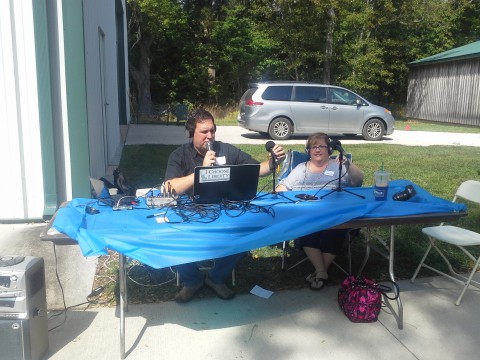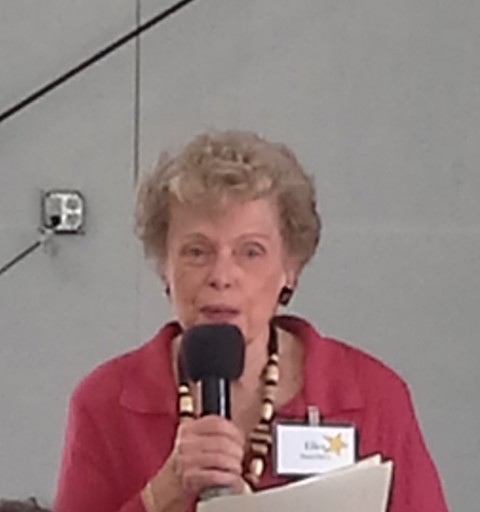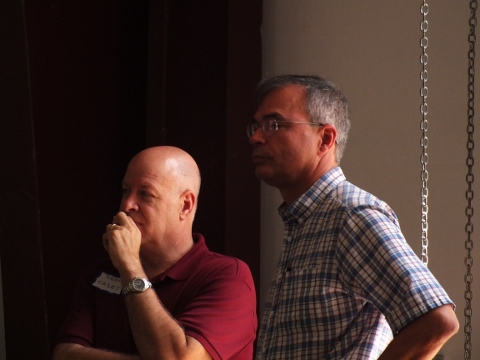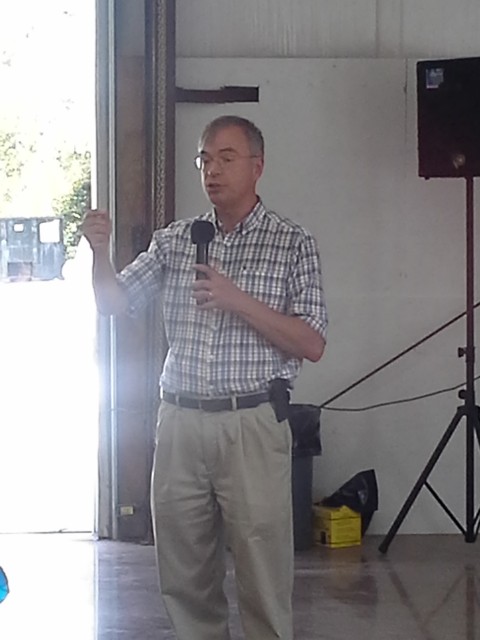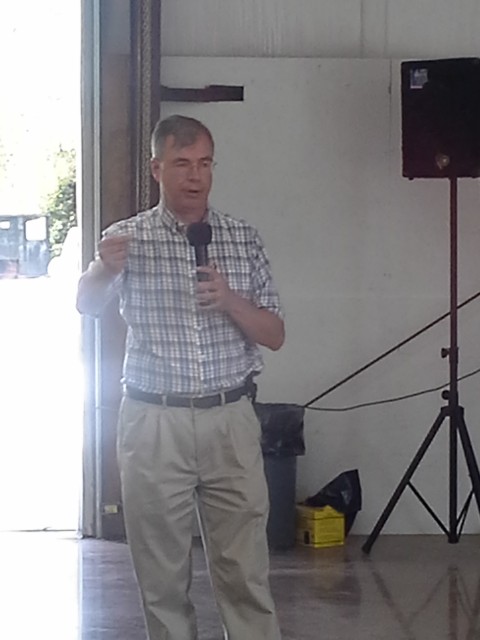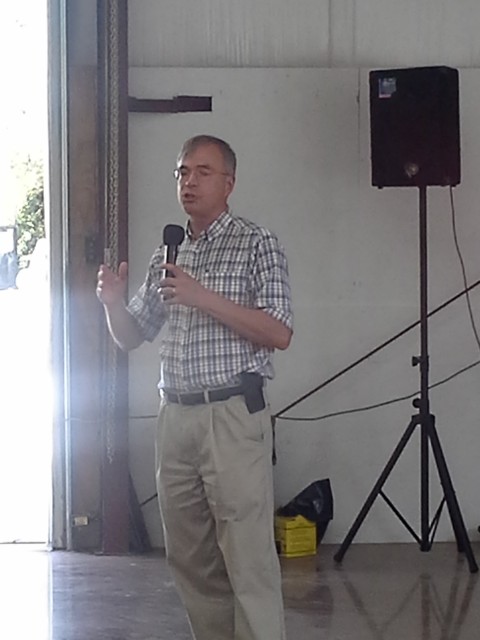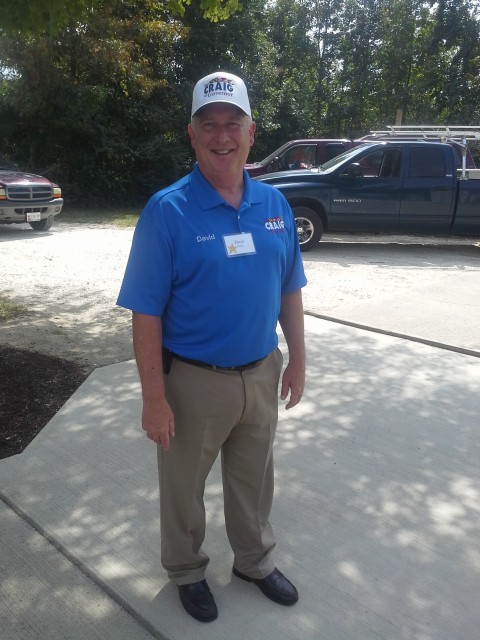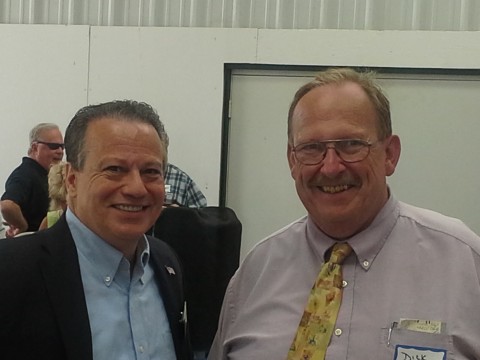At the most recent Wicomico County Republican Club meeting last Monday, gubernatorial candidate Ron George briefly mentioned that our state’s debt was cycling from a five-year payback to a fifteen-year payback, thanks to the desire of Martin O’Malley to keep annual debt service down and appear to balance the budget without further vast tax increases. George further expanded on this point in a release Thursday morning:
Delegate Ron George opposes Gov. Martin O’Malley’s increase in the state’s bond limit.
“I agree with Comptroller Franchot that we cannot afford more bond lending,” George remarked. “O’Malley is shifting today’s debt onto our children. He cannot fund the budget with existing revenue so he has backfilled the budget with bond bills.”
Delegate George also noted that it was the O’Malley/Brown administration who extended our debt service from 5 years to 15 years thus creating ever increasing future structural deficits.
The “out of left field request” for $750 million additional bond debt was made last Monday at a hastily-called Capital Debt Affordability Committee meeting, which also ran afoul of public meeting notice requirements – not that anyone else called O’Malley out for this violation, excused with the weak pabulum of “we overlooked that.” (Some seem more interested in $1,600 a particular Republican candidate is fighting over with the state.) Granted, $750 million over 15 years will not break the state’s $37 billion-plus annual budget, but we don’t yet know what they will spend it on.
At least Ron has room to talk: with the exception of Martin O’Malley’s very first budget – which was opposed by just five House GOP members – George has been a steadfast opponent of state spending over the years.
But the more important pieces of the puzzle come in the fact that it’s the piece of our property tax we turn over to the state which pays these bills, and unlike our local government’s revenue cap the state has no barrier to raising property taxes at any rate they wish. Currently, the state rate is 11.2 cents per $100 of assessed valuation, a rate which has remained constant since fiscal year 2006. Since the state’s property tax was reformed in the 2000 legislative session, the rate has varied: 8.4 cents from FY2002-2003, 13.4 cents from FY2004-2005, and 11.2 cents since. For the owner of a home valued at $200,000, the state’s take is $224 a year – overall, the state derives around $750 million in revenue from property taxes.
By comparison, residents here in Wicomico County endured a county rate increase this year alone of 6.82 cents per $100 valuation, or $136.40 more from their pockets for a $200,000 home. In 2010, the rate was 75.9 cents per $100, now it’s 90.86 cents – in three years, the county’s increase has been higher than the state’s overall rate and is the largest increase from 2009-2013 in Maryland at almost 20 percent, despite the revenue cap. So it’s a sure bet the state can justify a nickel jump by stating it’s less than some counties fluctuate in a year’s time; this despite the fact four counties (Allegany, Baltimore City, Carroll, and GOP opponent David Craig’s Harford) have decreased their rate over the last half-decade while an additional seven have held the line.
So while Martin O’Malley can’t run a deficit in this state, he has the power to bond our children into submission and he appears to be using it to keep today’s bills paid.
Since it was Ron who brought up the subject of property taxes, perhaps a good question to ask is how he will reconcile this promise…
Grow the tax base in Baltimore, allowing other jurisdictions to keep their money home for infrastructure and education needs.
…with the fact that Baltimore City has a property tax rate over double that of any other jurisdiction in the state, even as it’s decreased slightly over the last few years. Indeed, bringing it back to parity with other jurisdictions would be a major achievement but you can bet your bottom dollar Stephanie Rawlings-Blake would scream bloody murder and demand a state handout to make up the difference. But if I’m looking at property in Baltimore proper vs. suburban tracts, the taxes alone would be discouraging for urban development.
Then again, we know what “solution” the Democrats have in mind, and it involves more from our wallets.



